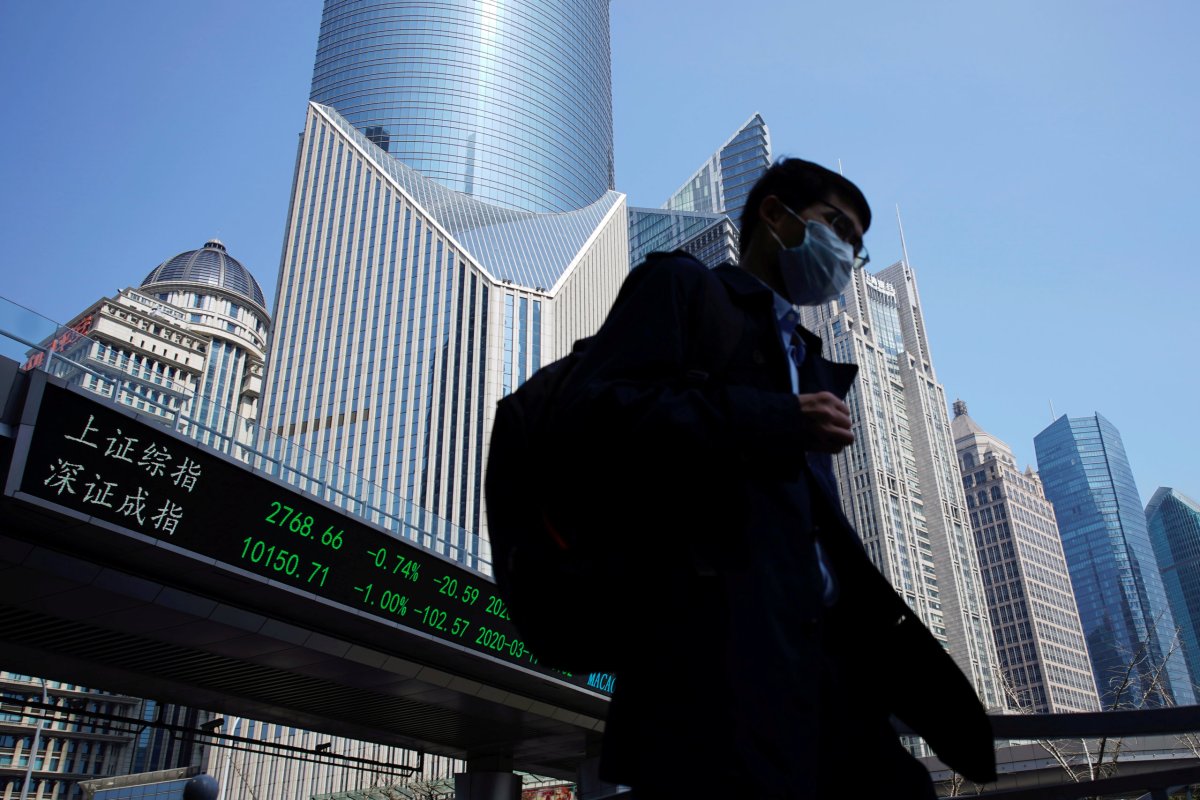SHANGHAI/HONG KONG (Reuters) – One unforeseen outcome from the coronavirus outbreak in China is that it is speeding up capital market reform even as economic activity is gummed up by restrictions to contain its spread.
Beijing is stepping up plans for a new ‘mini-IPO” market to help the country’s army of small companies access capital quickly, as it keeps growing the next generation of innovative companies despite the short-term impact from the virus on business confidence.
The reform on China’s moribund New Third Board is the second major step in less than a year aimed at developing the country’s ability to finance its next tech champions, artificial intellignce or fifth-generation telecoms (5G) firms.
Plans to transform the New Third Board into a feeder for the bigger exchanges were designed to help create a financing channel for start-ups without the need for the foreign finance that supported China’s Alibaba <BABA.N> and Tencent <0700.HK>.
The devastating hit from the virus outbreak on small- and medium-sized enterprises – which employ around 80% of workers – could see the new scheme rolled out by July.
“The epidemic makes life hard for SMEs, which is why Beijing is accelerating the reform,” said Zhang Chi, CEO of private equity firm Xin Ding Capital.
Chinese President Xi Jinping in February called on banks and others to boost support for virus-hit SMEs. Two weeks later, the National Equities Exchange and Quotations (NEEQ), operator of the New Third Board, said it would accelerate its reform plans.
Under the scheme, companies already on the board which meet certain criteria can apply to NEEQ for what brokers have dubbed a “mini-IPO”, involving selling shares to new investors and joining a new “select tier.”
Companies in the tier can later migrate to Shanghai’s STAR Market or Shenzhen’s ChiNext – both bigger tech hubs, offering greater opportunities to raise more funds – without the rigours of another IPO.
The regulator has asked brokerages to drum up investor interest while more than 100 companies, ranging from biotech firms to software makers, are preparing to join the new tier.
“It’s an encouraging move,” said Wilson Chow, who heads PwC’s global TMT industry practice. “This will certainly encourage these companies to stick to domestic capital markets and continue supporting national growth policies.”
REFORMS
The board will help China’s drive toward capital sufficiency at a time of trade tensions with the United States.
As well as supporting start-ups, the plan underlines policymakers’ determination to fund promising businesses at home – and their willingness to give up control of the process to achieve that.
Chinese companies have raised $279 billion through IPOs in the past five years – 30% of the global total – but more than half of those funds were raised in Hong Kong and New York. Firms opted to list abroad to avoid red tape and the lenthy approval process, but also because the sums available were so much larger.
Last year’s big reform was Shanghai’s Nasdaq-like STAR Market which was the first in China to do away with regulatory approval for each IPO and the first to allow pre-profit companies to list, at valuations set by the market.
So far, 92 companies have raised $12.9 billion via STAR Market floats – more than half the total raised in Shanghai in that time.
MINI-IPOS
Battery-maker BTR, telecommunications company Guizhou Flidam Technology Co and drugmaker Senxuan Pharmaceutical are among companies that have hired underwriters for mini-IPOs.
“It’s a new way out for China’s SMEs,” said Yin Rongzao, chairman of Borunte Robot Co Ltd, a privately run robot maker in southern Guangdong Province which aspires to join the new tier.
Some 9,000 companies are now listed on the board, but it has suffered from poor liquidity since China’s spectacular 2015 market boom and bust.
Mini-IPO candidates need a minimum expected market capitalisation of 200 million yuan, compared with 1 billion yuan ($141.4 million) for the STAR Market.
Regulators have also widened the pool of potential investors by cutting the minimum asset threshold to 1 million yuan from 5 million yuan, and are allowing mutual funds to invest.
Tu Zhengfeng, managing director of Shenwan Hongyuan Securities, who oversees tech-related underwriting, estimates that up to 80 companies could join the new tier in the first year.
Not all of China’s attempted market reforms have worked – a 2018 attempt to list Alibaba and others at home via so-called Chinese Depositary Receipts was quietly shelved – and some investors remain fearful of the risk.
Between an all-time high in April and July 2015, the New Third Board <.CSI899001> plunged 40% and low trading volumes has made recovery more difficult than for other, bigger exchanges.
Frank Bi, partner of law firm Ashurst, sounded a note of caution.
“It will be important to monitor these reforms and how sustainable they are if they’re to have any long-term effect on where Chinese companies choose to list,” he said.
Though it may take time for markets to embrace the mini-IPOs, new ways to raise funds seem inevitable.
“China’s economy is moving toward a more innovation-based growth model, and you need to transform your capital markets to support that change,” said Fan Lei, economist at Sealand Securities, adding that traditional bank loans secured against company assets were not the solution for innovative start-ups.
“The reform will also help develop direct financing and reduce China’s reliance on debt.”
(Editing by Jennifer Hughes and Jacqueline Wong)






















